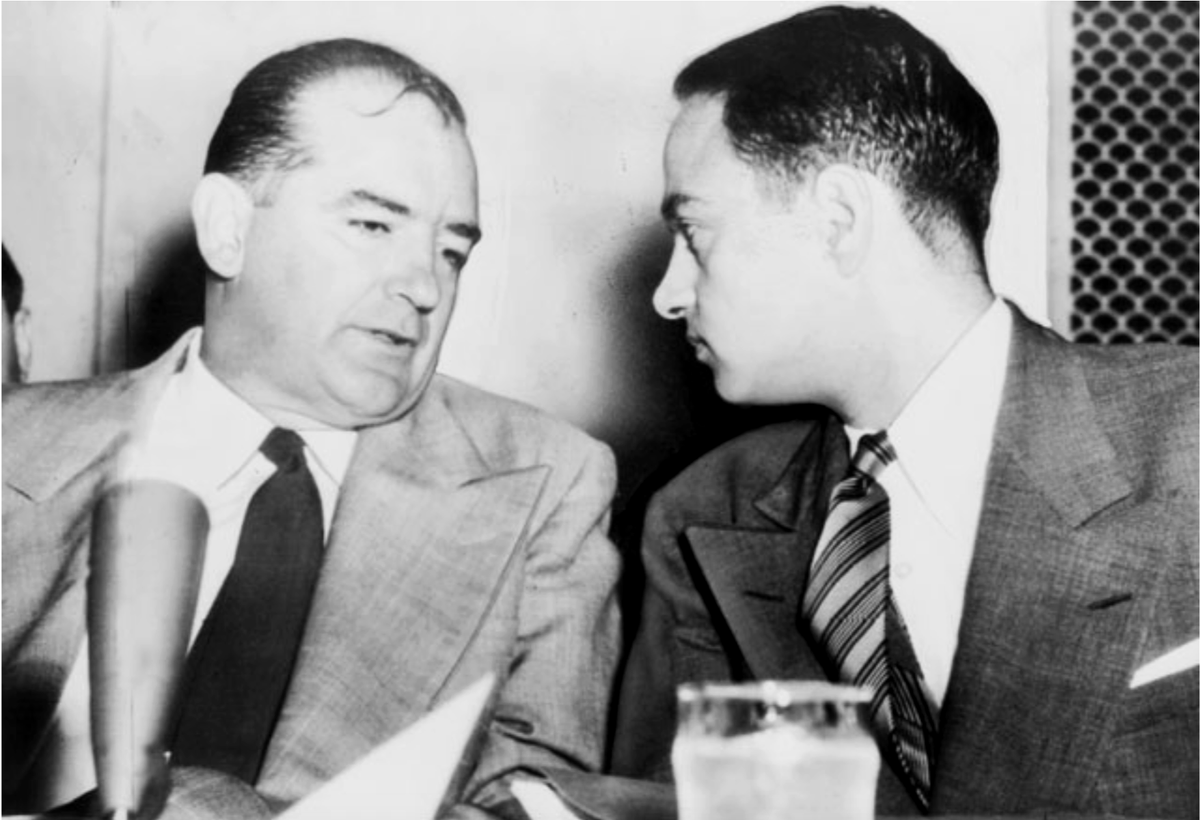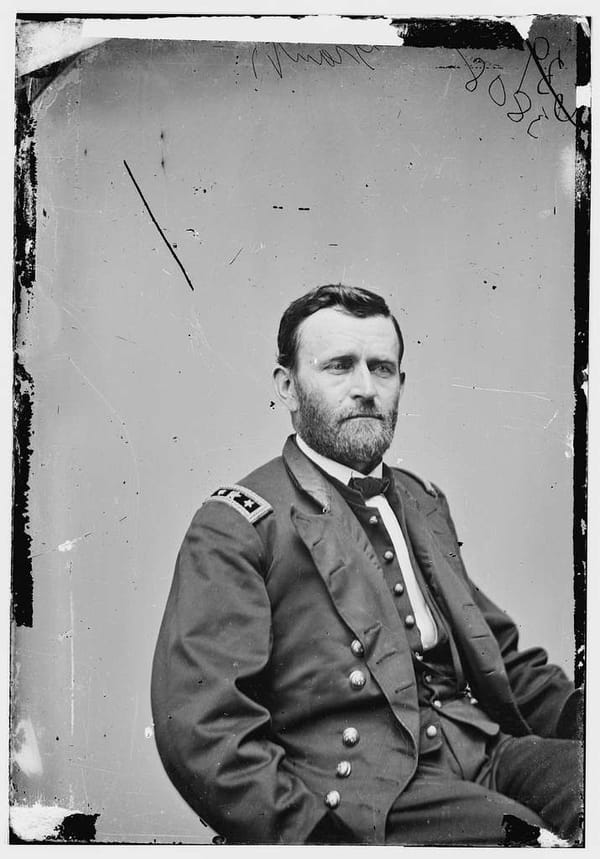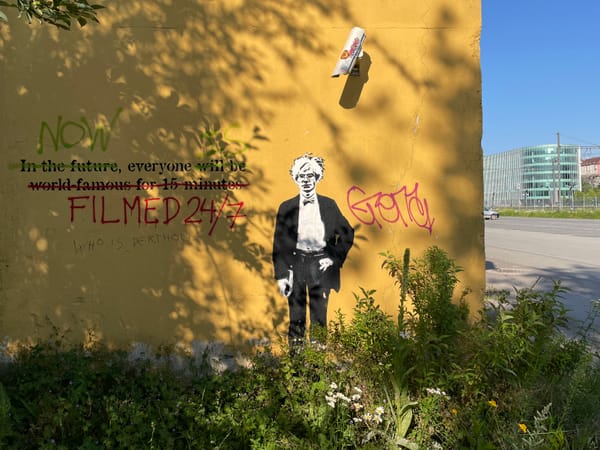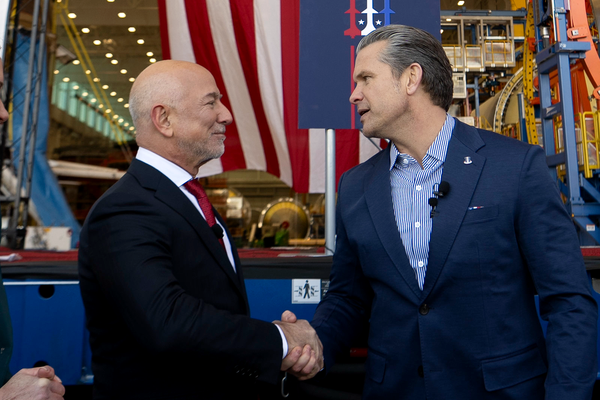Joanne Freeman on what the Democrats can learn from the Founders
What lessons should we take from the Founders today?

We're about to reach the 250th anniversary of the founding of the United States of America. More precisely, it'll be 250 years since the Declaration of Independence was adopted. The Founders of this country are often celebrated, while acknowledging their serious flaws, but they're also frequently misunderstood.
One thing you can say about the Founders is that they understood two subjects: power and human nature. Anyone who reads the Constitution will see that they thought deeply about these concepts when they were establishing the government of this nation. As we approach our semiquincentennial, I thought it'd be useful to look back and see what we can learn from their hopes and fears at the time of the founding.
"What they ended up creating at the Constitutional Convention was not what they were sent there to do," Joanne Freeman, a professor of history at Yale University, tells me. "They were sent there to basically revise the Articles of Confederation, and they came up instead with an entirely new government."
Once the Constitution was written, it had to be sold. They had to sell the people on this new document. They did this through the newspapers, pamphlets, public debate, endorsements and more. At a time when many would argue the Democratic Party needs to get better at selling its ideas and its accomplishments, perhaps there's something to be learned from this period.
"The Federalist essays are treated as though they are sort of the Bible of the Constitution—that they're objective—and they're not. They're actually very subjective," Freeman says. "They're an advertisement for the Constitution... There are ways in which the essays play up things that seem good, play up threats that maybe weren't really necessarily there a lot or at all. They were very much trying to sell the country on the fact that they should go along and ratify the Constitution."
The people were worried about the government having too much power, so part of the way they sold the Constitution was by agreeing to add the Bill of Rights, which was essentially a list of things the government could not do.
The Constitution was adopted, and off we went. However, it wasn't long before some of the people who sold us on the Constitution, the Federalists, had to be reminded of the power of selling your ideas. They lost power in the 1800 election when Thomas Jefferson, a Democratic-Republican, was elected.
"The Federalists are trying to figure out, what did we do wrong?" Freeman says. "And what they essentially say is, 'You know, we wrote a lot of letters with a lot of thoughts about what was going on, and we sent them to each other. We didn't actually try to sell them to the public at all.' So, you know, our system is entirely grounded on public opinion, and that was something that people were conscious of in that time period."
As I said, one of the things the Founders understood was power, and they put the power in the hands of the people. However, they knew there were risks involved in doing that. When they were writing the Constitution, they tried to account for those risks. Unfortunately, it seems we didn't learn from the fears they espoused at that time.
"One of the primary things that they thought about over and over again was power. That's what the whole constitutional debate was about. That was what the Revolution was about," Freeman says. "The thing about democratic government is it is grounded in the people, and that means it's vulnerable or susceptible to power grabbers. That's why they're constantly talking about demagogues. That was their main fear."
Freeman says the Founders looked back at ancient Greece and ancient Rome and saw that "republics fall because demagogues come along." Those demagogues say whatever they need to say to get the public on their side, and then they do whatever they want.

"They thought that their system of checks and balances and separation of powers would be a way to restrain and channel power to prevent some of what we're seeing now from happening," Freeman says.
A topic that often comes up when we discuss the Supreme Court these days is originalism, since the conservative majority of the Court claims to adhere to that principle. However, the problem with originalism is that it doesn't actually match up with the intentions of the Founders themselves.
"They did not assume ever that they were going to do this thing, and it was going to stay in place unchanged forever," Freeman says. "There's a reason why there's an amendment process. Thomas Jefferson thought a generation is roughly 19 years, and maybe every generation should have its own constitution."
Going back and trying to figure out exactly what the Founders thought was acceptable in the 18th century doesn't really make any sense in that context. Furthermore, originalism is usually just used as a shield to defend what are actually partisan rulings. Freeman says the Constitution "was not seen as this unchanging document." It was seen as something that would change with the times.
"When John Adams was in his old age, all of the sort of Founder folk who lasted into senior citizen years got letters from random strangers," Freeman says. "People were constantly writing to him saying, 'Tell us about the golden founding era—the wonderful founding and the Declaration.' They wanted stories. And what Adams said over and over again was, and this is a bad paraphrase, 'Here's the thing you want me to tell you: that we were perfect, that we knew what we were doing, that what we did was, somehow, this golden, special period. We didn't know what we were doing. We made mistakes constantly. And if you think that we were perfect, then from this moment on, it's going to be all downhill.'"
Now, something that is happening today does match what the Founders would have hoped for, Freeman says. As Donald Trump has been sending ICE agents into cities and terrorizing neighborhoods, we're seeing more and more people pushing back. In cities like Chicago, people are organizing, helping each other out and standing up for themselves. Freeman says that's the America the Founders wanted.
"That's the spirit of what American democracy is supposed to be," Freeman says. "All of the moments in America when power has shifted, and the people on top have not had as much power as they had before, those moments are all created by people on the bottom. Change comes bottom up in American society."






